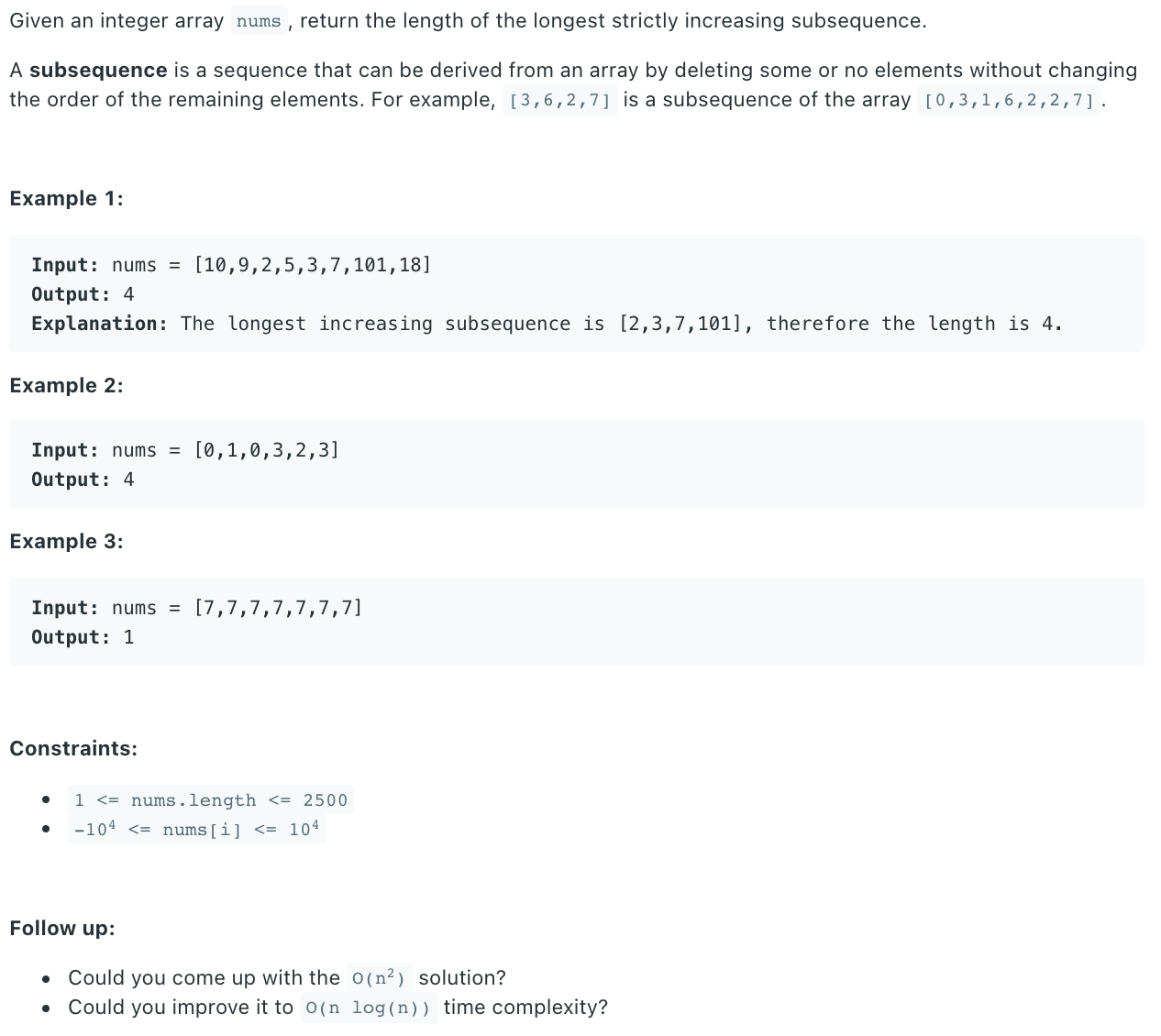Longest Increasing Subsequence

# Solution
Let be the length of the array.
The brute force solution is omitted.
# Follow Up
Could you come up with the solution?
# DP
Let dp[i] be the length of longest increasing subsequence ending with num[i].
The state transition is:
dp[i] = dp[j] + 1 where and num[j] < num[i].
That is, add nums[i] after the LIS in dp[0..i-1].
Complexity
time:
space:
def lengthOfLIS(self, nums: List[int]) -> int:
n = len(nums)
dp = [1 for _ in range(n)]
for i in range(1, n):
for j in range(i):
if nums[i] > nums[j] and dp[i] < dp[j] + 1:
dp[i] = dp[j] + 1
return max(dp)
2
3
4
5
6
7
8
9
10
Could you improve it to time complexity?
# Greedy Algorithm & Binary Search
To have a longer increasing subsequence, it should increase slower and the append a smaller num.
Maintain a monotonically increasing array gd, where gd[:i] represents the longest increasing subsequence in nums[:i].
When traversing nums, if nums[i] > gd[-1], append nums[i] to the end of gd; o.w., binary search for the first gd[k] where nums[i] > gd[k], and update d[k+1] = nums[i].
Complexity
time:
space:
def lengthOfLIS(self, nums: List[int]) -> int:
gd = []
for num in nums:
if not gd or num > gd[-1]:
gd.append(num)
else:
left, right = 0, len(gd)-1
pos = right
while left <= right:
mid = (left + right) // 2
if gd[mid] >= num:
pos = mid
right = mid - 1
else:
left = mid + 1
gd[pos] = num
return len(gd)
2
3
4
5
6
7
8
9
10
11
12
13
14
15
16
17
18
19